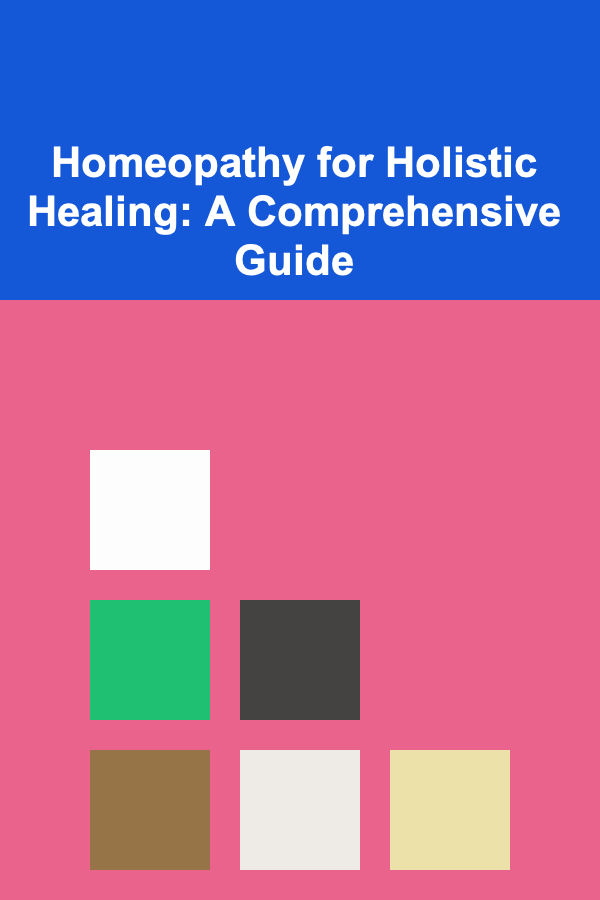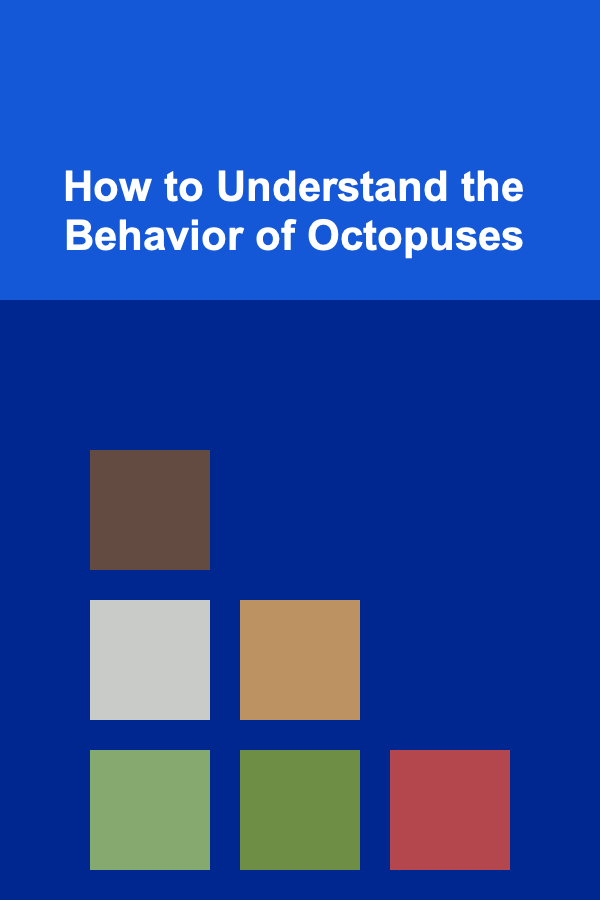
Homeopathy for Holistic Healing: A Comprehensive Guide
ebook include PDF & Audio bundle (Micro Guide)
$12.99$7.99
Limited Time Offer! Order within the next:

Homeopathy, derived from the Greek words homoios (similar) and pathos (suffering), is a system of alternative medicine founded in the late 18th century by German physician Samuel Hahnemann. Its core principle, often described as "like cures like," posits that a substance that causes symptoms in a healthy person can cure similar symptoms in a sick person. Beyond simply addressing symptoms, homeopathy aims for holistic healing, focusing on the individual's overall well-being -- encompassing physical, mental, and emotional aspects. This comprehensive approach is what distinguishes homeopathy from conventional medicine, which often targets specific diseases or symptoms in isolation.
The Foundational Principles of Homeopathy
Understanding the key principles of homeopathy is crucial for appreciating its unique approach to healing. These principles, while seemingly counterintuitive to modern scientific thinking, underpin the practice and efficacy, as perceived by homeopaths and those who benefit from it.
1. The Law of Similars: "Like Cures Like"
This is the cornerstone of homeopathy. The "law of similars" dictates that a substance capable of producing a specific set of symptoms in a healthy individual can cure those same symptoms when they arise in a sick individual. The logic behind this is that the substance stimulates the body's self-healing mechanisms to overcome the disease, mirroring the body's own natural healing processes but directing and amplifying them. Hahnemann arrived at this principle through experimentation, most famously through the cinchona bark (quinine) trial, where he observed that taking the bark, which caused malaria-like symptoms in him, also cured malaria. This concept directly opposes allopathic medicine, which often uses substances to suppress or counteract symptoms.
For example, consider the case of insomnia associated with anxiety. A homeopathic remedy like Coffea cruda (derived from coffee) might be prescribed, even though coffee is known to cause wakefulness. The highly diluted and potentized Coffea cruda is believed to stimulate the body's own regulating mechanisms to alleviate the underlying anxiety, thereby promoting restful sleep.
2. The Single Remedy
Homeopathy emphasizes the use of a single, well-chosen remedy at a time. This allows the homeopath to observe the effects of that specific remedy clearly and to understand how the patient is responding. Prescribing multiple remedies simultaneously can obscure the picture, making it difficult to determine which remedy is working or causing unwanted effects. The focus is on identifying the simillimum -- the remedy that most closely matches the totality of the patient's symptoms, both physical and psychological.
3. The Minimum Dose
Homeopathic remedies are prepared through a process of serial dilution and succussion (vigorous shaking). This process, known as potentization, involves diluting the original substance repeatedly, often to the point where there are theoretically no molecules of the original substance remaining. Despite the extreme dilutions, homeopaths believe that the process of succussion imprints the "energy" or "information" of the original substance onto the diluent (usually water or alcohol). The rationale behind the minimum dose is that the smallest possible stimulus is often the most effective in triggering the body's self-healing response. This avoids overwhelming the system and minimizes the risk of adverse effects.
Skeptics often criticize this principle, arguing that highly diluted remedies lack any active ingredient and therefore cannot have any therapeutic effect. However, proponents of homeopathy suggest that the process of potentization alters the structure of the water or alcohol in a way that allows it to carry the therapeutic information of the original substance. The exact mechanism of action remains a subject of debate and ongoing research, some of which explores the nanoscopic properties of highly diluted solutions.
4. The Totality of Symptoms
Homeopathic treatment is not just about addressing the presenting complaint but about understanding the individual as a whole. The homeopath takes a detailed case history, exploring not only the physical symptoms but also the patient's mental, emotional, and behavioral characteristics. Factors such as personality, fears, anxieties, sleep patterns, food preferences, and reaction to weather are all considered relevant. The totality of symptoms forms a unique "symptom picture" that guides the selection of the most appropriate remedy. This individualized approach is crucial for achieving successful outcomes.
5. The Vital Force
Hahnemann believed that disease arises from a disturbance in the "vital force" -- a dynamic, immaterial energy that animates the body and maintains its health. This vital force is responsible for the body's self-regulating and self-healing abilities. Homeopathic remedies are believed to stimulate the vital force, helping it to restore balance and overcome disease. While the concept of the vital force is not recognized by conventional medicine, it represents the homeopathic understanding of the body's inherent capacity for healing.
How Homeopathic Remedies Are Prepared
The preparation of homeopathic remedies is a meticulous and specific process involving dilution and succussion, collectively known as potentization. This process is critical to homeopathy, as it is believed to unlock the therapeutic potential of the original substance while minimizing any potential toxicity.
1. Mother Tincture
The process begins with the preparation of a "mother tincture" (tinctura matrix in Latin). This is the initial extract of the raw material -- which can be a plant, mineral, animal product, or even a disease product (nosode). The raw material is typically macerated in alcohol and water for a specific period, then filtered to obtain the mother tincture. The mother tincture is considered the "1X" or "D1" potency.
2. Dilution and Succussion
From the mother tincture, subsequent dilutions are made. Each dilution is followed by vigorous shaking (succussion). There are two main scales used for dilutions:
- Decimal (X or D): In the decimal scale, one part of the previous dilution is mixed with nine parts of diluent (usually alcohol and water). The mixture is then succussed. For example, a 1X potency is prepared by diluting one part of the mother tincture with nine parts of diluent and succussing. To prepare a 2X potency, one part of the 1X dilution is mixed with nine parts of diluent and succussed. This process is repeated for higher potencies.
- Centesimal (C): In the centesimal scale, one part of the previous dilution is mixed with ninety-nine parts of diluent and succussed. A 1C potency is prepared by diluting one part of the mother tincture with ninety-nine parts of diluent and succussing. A 2C potency is prepared by diluting one part of the 1C dilution with ninety-nine parts of diluent and succussed, and so on.
The succussion process is believed to be essential for transferring the therapeutic properties of the original substance to the diluent. While the exact mechanism of succussion is not fully understood, it is thought to create nano-structures or energetic imprints in the diluent.
3. Potencies
Homeopathic remedies are available in a wide range of potencies, from low potencies (e.g., 6X, 6C) to high potencies (e.g., 30X, 30C, 200C, 1M, 10M). Higher potencies are more diluted but are believed to have a deeper and more prolonged effect on the vital force. The choice of potency depends on the individual patient, the nature of their illness, and the judgment of the homeopath. Very high potencies (e.g., 1M and above) are typically prescribed by experienced practitioners.
4. Forms of Remedies
Homeopathic remedies are typically dispensed in the form of:
- Sugar pellets: These are small, lactose-based pellets that are impregnated with the diluted and succussed solution.
- Liquid: The diluted and succussed solution can also be dispensed directly as a liquid.
- Tablets: Some remedies are available in tablet form, often containing lactose as a base.
Patients are instructed to take the remedies sublingually (under the tongue), allowing them to be absorbed directly into the bloodstream.
The Homeopathic Consultation: An Individualized Approach
A homeopathic consultation is a detailed and comprehensive process that aims to understand the patient as a whole. It is not simply a matter of identifying the disease and prescribing a remedy; it involves a thorough exploration of the patient's physical, mental, and emotional state.
1. Case Taking
The initial consultation, often lasting one to two hours, involves a detailed case taking. The homeopath will ask about:
- Presenting complaint: A detailed description of the main symptoms, including their location, sensation, modalities (what makes them better or worse), and concomitants (associated symptoms).
- Past medical history: Any previous illnesses, treatments, and surgeries.
- Family history: The medical history of close family members, including any hereditary predispositions.
- Lifestyle: Diet, sleep patterns, exercise habits, stress levels, and social relationships.
- Mental and emotional state: Personality traits, fears, anxieties, mood swings, and reactions to stress.
- General characteristics: Appetite, thirst, sleep patterns, reaction to weather, and perspiration.
The homeopath will pay particular attention to the individual's unique and peculiar symptoms, as these are often the key to finding the correct remedy. The goal is to build a comprehensive picture of the patient's overall health and well-being.
2. Repertorization
Once the case has been taken, the homeopath will use a "repertory" -- a comprehensive index of symptoms and their corresponding remedies -- to analyze the case. The repertory lists thousands of symptoms, each with a list of remedies known to address that symptom. The homeopath will select the most prominent and characteristic symptoms and use the repertory to identify a short list of potential remedies.
3. Materia Medica Study
After repertorization, the homeopath will consult the "materia medica" -- a detailed description of the therapeutic properties of each remedy. The materia medica provides information about the source of the remedy, its proving symptoms (symptoms observed in healthy individuals who have taken the remedy), and its clinical applications. The homeopath will carefully study the materia medica descriptions of the potential remedies, comparing them to the patient's symptom picture. The goal is to find the simillimum -- the remedy that most closely matches the totality of the patient's symptoms.
4. Remedy Selection and Prescription
Based on the case taking, repertorization, and materia medica study, the homeopath will select the most appropriate remedy and prescribe it to the patient. The potency and frequency of administration will depend on the individual patient, the nature of their illness, and the homeopath's clinical judgment. Patients are typically instructed to take the remedy and observe their response carefully.
5. Follow-Up
Follow-up consultations are an essential part of homeopathic treatment. During follow-up appointments, the homeopath will assess the patient's response to the remedy and make any necessary adjustments to the treatment plan. The homeopath will look for signs of improvement, such as a reduction in symptoms, an increase in energy, and an improvement in overall well-being. The homeopath may also observe for any new or emerging symptoms, which could indicate that a different remedy is needed. The goal is to monitor the patient's progress and ensure that they are on the path to healing.
Homeopathy for Holistic Healing: Beyond Symptom Relief
While homeopathy can be effective in relieving specific symptoms, its primary goal is to promote holistic healing -- addressing the root cause of illness and restoring balance to the whole person. This holistic approach encompasses physical, mental, and emotional well-being.
1. Strengthening the Vital Force
By stimulating the vital force, homeopathic remedies help to strengthen the body's natural healing abilities. This allows the body to better cope with stress, resist infection, and recover from illness. A stronger vital force translates to improved overall health and resilience.
2. Addressing Underlying Imbalances
Homeopathy aims to address the underlying imbalances that contribute to illness. These imbalances can be physical, mental, or emotional in nature. By addressing these root causes, homeopathy can provide lasting relief and prevent recurrence of symptoms.
3. Improving Mental and Emotional Well-being
Homeopathy can be particularly effective in treating mental and emotional disorders, such as anxiety, depression, and insomnia. By addressing the underlying emotional imbalances, homeopathic remedies can help to restore a sense of calm, well-being, and emotional stability.
4. Enhancing Self-Awareness
The homeopathic consultation process encourages self-reflection and self-awareness. By exploring their symptoms in detail and discussing their mental and emotional state with the homeopath, patients gain a deeper understanding of themselves and their health. This increased self-awareness can empower them to make positive lifestyle changes and take greater responsibility for their well-being.
5. Promoting Individualized Care
Homeopathy emphasizes individualized care, tailoring treatment to the unique needs of each patient. This personalized approach ensures that the patient receives the most appropriate remedy for their specific condition and constitution. Individualized care is essential for achieving successful outcomes and promoting long-term health.
Conditions Commonly Treated with Homeopathy
Homeopathy is used to treat a wide range of acute and chronic conditions. Some of the conditions commonly treated with homeopathy include:
- Allergies: Hay fever, asthma, eczema
- Respiratory infections: Colds, flu, bronchitis, sinusitis
- Digestive disorders: Irritable bowel syndrome (IBS), constipation, diarrhea
- Skin conditions: Acne, psoriasis, eczema, warts
- Mental and emotional disorders: Anxiety, depression, insomnia, stress
- Women's health issues: Menstrual problems, menopause symptoms, pregnancy-related ailments
- Children's health issues: Colic, teething, ear infections, behavioral problems
- Chronic pain conditions: Arthritis, fibromyalgia, migraines
It is important to note that the effectiveness of homeopathy for these conditions is a subject of ongoing debate. While many people report positive experiences with homeopathy, rigorous scientific evidence supporting its efficacy is limited. Individuals considering homeopathy should discuss their options with a qualified healthcare professional.
Choosing a Qualified Homeopath
Selecting a qualified and experienced homeopath is crucial for ensuring safe and effective treatment. Here are some factors to consider when choosing a homeopath:
- Credentials and Training: Look for a homeopath who has completed a recognized training program and holds appropriate certifications or licenses. Different countries and regions have varying regulations regarding homeopathic practice.
- Experience: Inquire about the homeopath's experience in treating your specific condition. A homeopath with experience in your area of concern is more likely to be familiar with the relevant remedies and treatment protocols.
- Communication Skills: Choose a homeopath who is a good listener and communicator. You should feel comfortable discussing your symptoms and concerns with them.
- Approach to Treatment: Ask about the homeopath's approach to treatment and their philosophy of healing. Ensure that their approach aligns with your own values and beliefs.
- Referrals and Reviews: Seek referrals from friends, family, or other healthcare professionals. Read online reviews to get an idea of the homeopath's reputation and patient satisfaction.
The Scientific Debate Surrounding Homeopathy
Homeopathy remains a controversial topic in the scientific community. The fundamental principles of homeopathy, particularly the concept of extreme dilutions, are not supported by conventional scientific understanding. Numerous studies have investigated the efficacy of homeopathy for various conditions, and the overwhelming majority of these studies have found no evidence that homeopathic remedies are more effective than placebo.
However, some researchers argue that conventional scientific methods may not be appropriate for evaluating the effects of homeopathy. They suggest that homeopathy may work through different mechanisms, such as influencing the body's bioenergetic field or affecting gene expression. Further research is needed to explore these possibilities.
Despite the lack of scientific evidence, many people continue to use homeopathy and report positive experiences. These anecdotal reports suggest that homeopathy may have a beneficial effect, even if the mechanism of action is not fully understood. It is possible that the placebo effect, the therapeutic relationship between the practitioner and the patient, or other factors may contribute to the perceived benefits of homeopathy.
It's vital for individuals considering homeopathic treatment to have realistic expectations and to discuss their options with their healthcare provider. Homeopathy should not be used as a replacement for conventional medical treatment for serious or life-threatening conditions.
Integrating Homeopathy with Conventional Medicine
Homeopathy can be used as a complementary therapy alongside conventional medicine. In some cases, homeopathy can help to alleviate side effects of conventional treatments or to improve overall well-being during conventional medical care. However, it is crucial to inform your conventional doctor about your use of homeopathic remedies, as some remedies may interact with conventional medications.
The integration of homeopathy with conventional medicine should be done under the guidance of qualified healthcare professionals who are knowledgeable about both systems of medicine. A collaborative approach can help to ensure that the patient receives the best possible care.
Conclusion: A Personalized Path to Well-being
Homeopathy offers a unique and individualized approach to healing, focusing on the whole person and aiming to restore balance and vitality. While the scientific evidence supporting its efficacy remains limited, many people find it to be a valuable complementary therapy. By understanding the principles of homeopathy, choosing a qualified practitioner, and integrating it thoughtfully with conventional medicine, individuals can explore homeopathy as a potential path to holistic well-being.
Disclaimer: This article is for informational purposes only and does not constitute medical advice. Homeopathy should not be used as a substitute for conventional medical treatment. Always consult with a qualified healthcare professional before making any decisions about your health.

How to Build a Checklist for Preparing for a Family Reunion
Read More
How to Create a Family Journal to Document Special Moments
Read More
How to Make a Checklist for Recognizing and Rewarding Employee Performance
Read More
How to Use Deep Learning to Create Profitable Automated Systems
Read More
The Art of Collaboration: Building Dynamic Teams as a Creative Director
Read More
How to Understand the Behavior of Octopuses
Read MoreOther Products

How to Build a Checklist for Preparing for a Family Reunion
Read More
How to Create a Family Journal to Document Special Moments
Read More
How to Make a Checklist for Recognizing and Rewarding Employee Performance
Read More
How to Use Deep Learning to Create Profitable Automated Systems
Read More
The Art of Collaboration: Building Dynamic Teams as a Creative Director
Read More